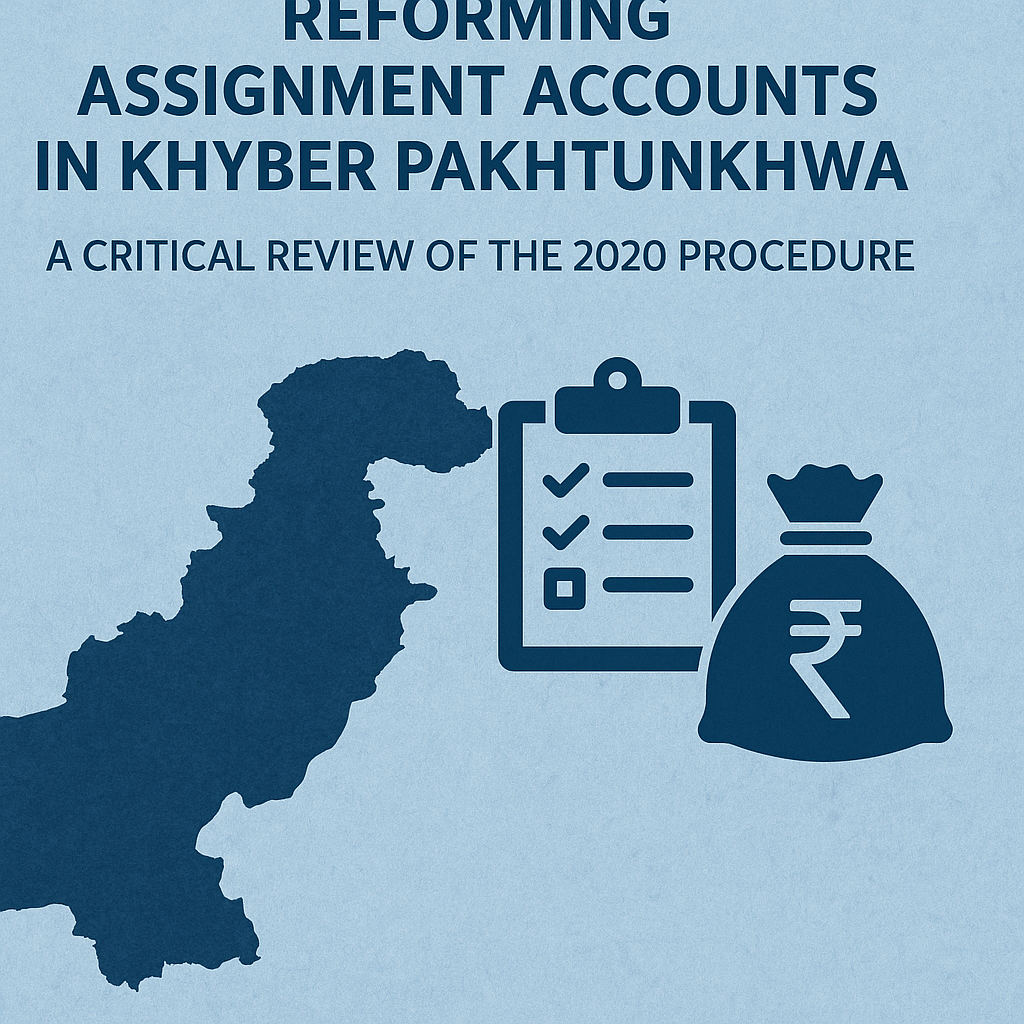
Khyber Pakhtunkhwa’s Assan Assignment Account Procedure (Local Currency), 2020 marks a pivotal shift in how the provincial government manages assignment accounts under its development and non-development budgets. Designed to align with the Public Finance Management Act (PFMA) 2019 and transition toward a Treasury Single Account (TSA) regime, the procedure aims to promote accountability, reduce fragmentation, and modernize fund disbursement practices. While well-intentioned, the policy reveals key procedural and implementation gaps that require targeted reforms.
The procedure outlines that Principal Accounting Officers (PAOs) hold exclusive authority to manage account operations, including opening, closing, and nominating signatories. Assignment Accounts are to be opened only with National Bank of Pakistan (NBP) branches, and cash withdrawals or fund transfers are disallowed. NBP was also required to automate these processes by December 2020. Additional provisions cover the establishment of sub-assignment accounts for decentralized operations and require that unspent balances be surrendered at year-end.
Despite these structural reforms, the framework suffers from bureaucratic rigidity. For example, all changes to signatories—even in temporary vacancies—require PAO approval, leading to administrative delays. In small-scale projects without BS-17 officers, workarounds have been adopted, which dilute the policy’s intent. Although automation was mandated, manual payments are still permitted with Finance Division consent, which undermines the policy’s digital focus.
The banking exclusivity of NBP also limits accessibility, particularly in underserved areas. While centralization helps standardize procedures, it may also restrict competition and service quality. Similarly, the mandatory surrender of unspent funds discourages long-term planning in multi-year projects, often triggering rushed, inefficient spending near fiscal year-end. Reconciliation requirements are weakly enforced, with no penalties for non-compliance.
Moreover, the policy assumes prior knowledge of PFMA rules and makes no provision for structured training, increasing the risk of procedural lapses.
Several practical reforms could make the procedure more effective. Introducing a centralized digital platform for real-time PAO approvals and automated reconciliation reminders would streamline workflows. The exception for manual payments should be removed to enforce full automation. Allowing Assignment Accounts in other SBP-regulated banks could enhance access and service quality.
Flexibility should also be built into fund management. A partial carry-forward mechanism—for example, allowing 20% of unspent funds to roll over—would improve planning without compromising fiscal discipline. Enforcement of monthly reconciliation through automated alerts and the inclusion of penalties would enhance compliance.
Mandatory training programs for PAOs and signatories, supported by partnerships with the National School of Public Policy, would build institutional capacity. Adding an annexure on ` currency guidelines would improve clarity for cross-border and donor-financed projects.
While the Assan Assignment Account Procedure, 2020, provides a solid base for modernizing KP’s public finance system, its potential remains constrained by procedural bottlenecks, limited flexibility, and underutilized digital tools. Addressing these issues would position KP to lead in accountable and adaptive fiscal governance.
This Article was published on www.publicfinance.pk.
